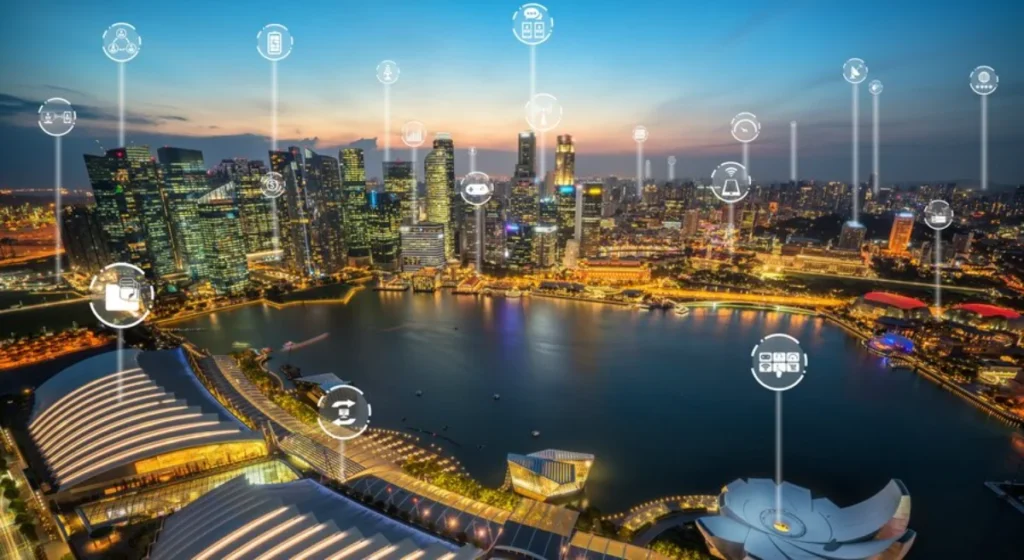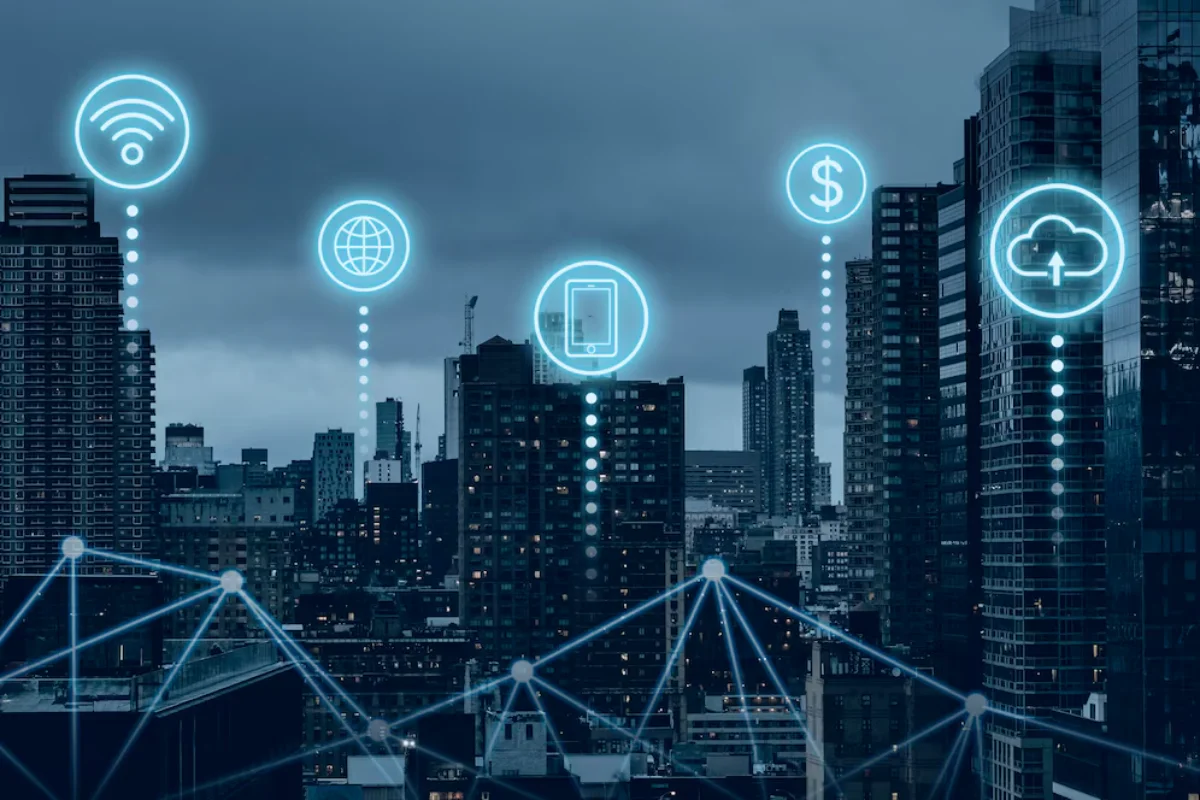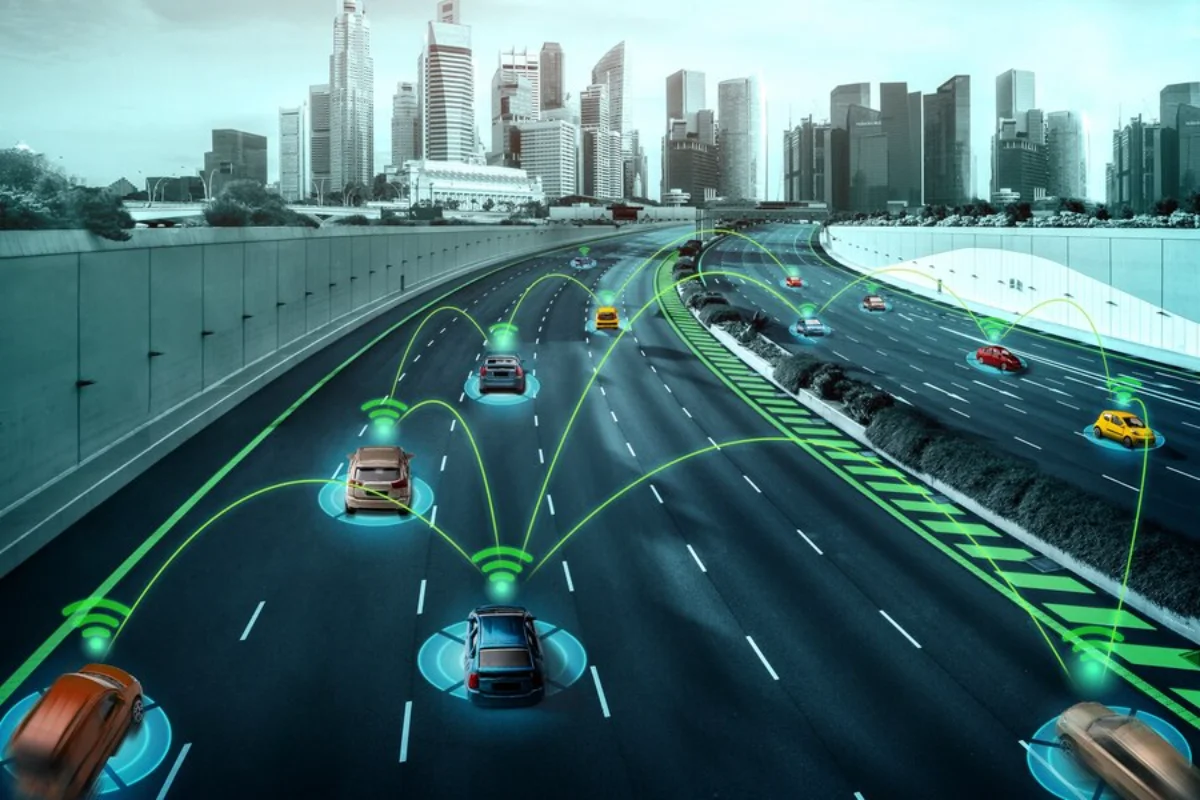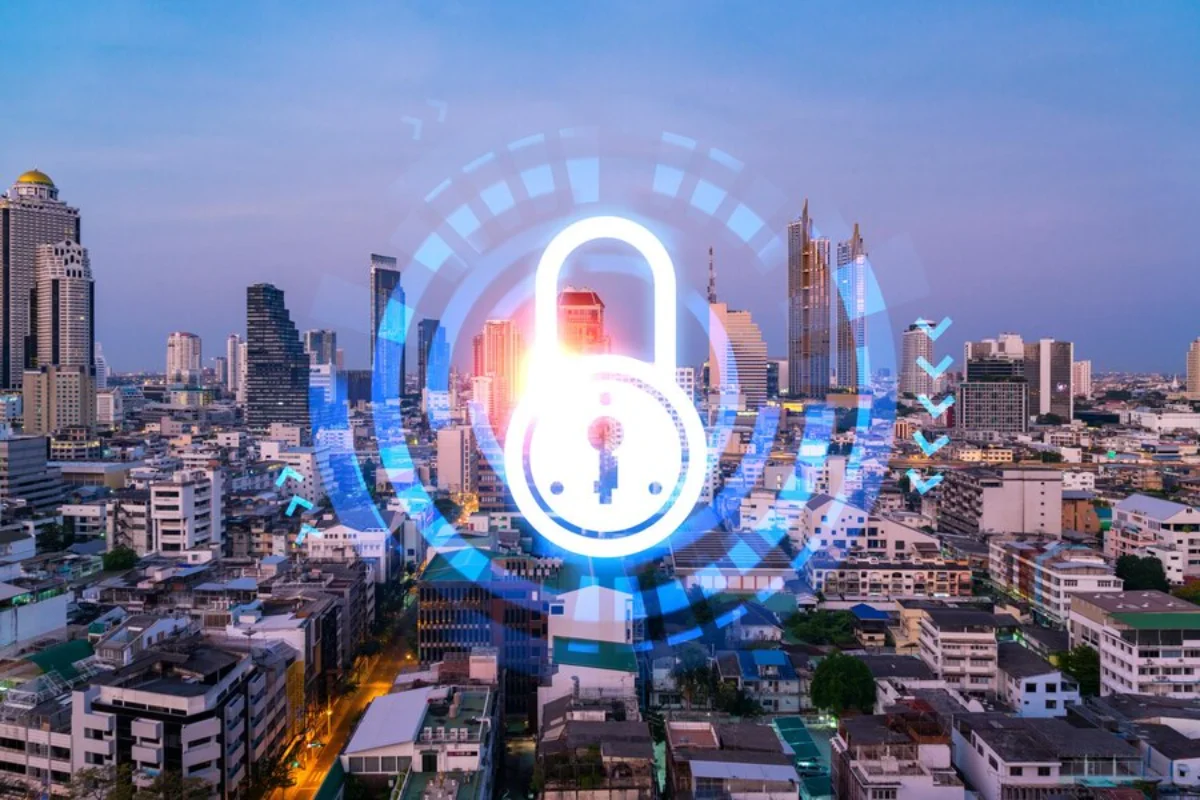The Technology Blog

How AI is Powering Smart Cities of the Future
Cities are expanding quickly. By 2050, more than 68% of the world’s people will live in urban areas. With this rapid urbanisation comes challenges such as traffic congestion, pollution, resource management, and public safety. Advancements in AI smart cities are changing urban areas. They make these spaces more efficient, sustainable, and intelligent.
Governments and tech companies are using urban tech and AI to improve cities. They use AI solutions to improve infrastructure, public services, and quality of life. But how exactly is AI powering the smart cities of the future? Let’s explore the technologies that are shaping urban living.
The Role of AI in Smart Cities

AI powers urban tech innovations. It helps cities gather, process, and analyse large data sets instantly. AI helps cities become “smart” by:
- Optimising traffic flow and reducing congestion
- Enhancing energy efficiency and sustainability
- Improving public safety and emergency response
- Automating waste management and urban planning
- Creating AI-powered public services for citizens
AI smart cities use data to be responsive and proactive. This approach makes urban areas more sustainable and enjoyable to live in.
Quick Guide: AI’s Role in Building Smarter Cities
- Traffic Solutions: AI adapts signals and routes to reduce congestion.
- Energy Efficiency: Smart grids optimise electricity use in real time.
- Public Safety: AI enhances surveillance, emergency response, and predictive policing.
- Waste Management: Smart bins and automated systems streamline recycling.
- Urban Planning: Machine learning helps design greener, more resilient cities.
- Healthcare: AI enables faster, smarter urban health services.
- Challenges: Privacy, cost, and algorithm bias must be addressed.
Pro Tip
When deploying AI in urban settings, always start small. Pilot programs in a single district allow cities to test real-world outcomes, identify biases, and optimise before scaling citywide.
Important
AI can make cities more efficient—but without the right oversight, it can also reinforce inequality or compromise privacy. Responsible deployment requires strong data governance, ethical frameworks, and public transparency.
Key AI-Powered Urban Tech Innovations

1. AI-Driven Traffic Management & Smart Transportation
Traffic congestion is one of the biggest challenges in urban areas. Future city AI is revolutionising transportation systems by:
- AI-powered traffic signals that adjust in real time based on vehicle flow.
- Smart parking systems that guide drivers to available parking spaces.
- AI-based public transport scheduling that optimises bus and train routes.
Singapore’s AI traffic system cuts congestion by up to 30%. It adjusts traffic lights based on real-time conditions.
2. AI in Energy Efficiency & Smart Grids
AI smart cities prioritise energy conservation and sustainability through:
- AI-powered smart grids that predict energy demand and prevent blackouts.
- Machine learning algorithms that optimise electricity distribution in real time.
- AI-controlled smart buildings that adjust lighting and temperature based on occupancy.
Barcelona has implemented AI-based energy management, reducing city-wide energy use by 30%.
3. AI-Powered Public Safety & Surveillance
AI is improving urban security and emergency response with:
- AI-driven facial recognition for faster crime detection.
- Predictive policing using AI analytics to anticipate criminal activity.
- Automated emergency response systems that dispatch help based on AI-detected incidents.
London’s AI CCTV system analyses video feeds live. It spots security threats quicker than humans can.
4. AI-Enabled Waste Management & Smart Recycling
Managing waste efficiently is a critical aspect of urban tech innovations. AI is improving:
- Smart waste bins that notify collectors when they are full.
- AI-driven recycling systems that separate waste more effectively.
- Autonomous waste collection robots that optimise collection routes.
South Korea uses AI to sort waste. This boosts recycling rates by 50% and cuts down landfill waste.
5. AI in Healthcare & Smart Hospitals
AI is making urban healthcare systems more efficient and accessible by:
- AI-driven telemedicine for remote consultations.
- Predictive healthcare analytics to prevent disease outbreaks.
- AI-powered hospital automation for scheduling and resource allocation.
Dubai’s AI healthcare system spots disease outbreaks and improves hospital resource use. This helps cut down emergency wait times.
6. AI in Sustainable Urban Planning & Climate Monitoring
AI-powered urban tech innovations are helping cities plan for the future by:
- AI-based climate monitoring systems to track pollution levels.
- Machine learning models that predict flooding, earthquakes, and heatwaves.
- Smart urban planning AI that optimises green spaces and building layouts.
Amsterdam’s AI-powered climate monitoring system predicts pollution spikes, reducing harmful emissions.
Benefits of AI Smart Cities
1. Enhanced Quality of Life
AI makes transportation, healthcare, and public services better. This improves urban life, making it more convenient and efficient.
2. Reduced Traffic Congestion
AI-driven traffic management reduces road congestion, saving commuters time and fuel.
3. Greater Energy Efficiency
Smart grids and AI-based electricity management save energy and cut carbon footprints.
4. Safer Cities with AI-Powered Security
AI-driven crime detection and predictive policing help prevent crimes before they happen.
5. Sustainable Urban Growth
AI helps balance economic development with environmental conservation, ensuring smart growth strategies.
Challenges of AI-Powered Smart Cities
While AI smart cities offer many advantages, there are key challenges to address:
1. Privacy & Data Security Concerns
AI collects vast amounts of data on citizens’ movements, habits, and behaviours. Without strict AI regulations, this could lead to privacy breaches.
Solution: Cities must implement strong data encryption and privacy laws to protect user data.
2. High Implementation Costs
AI-powered urban tech innovations require significant investment in infrastructure, AI models, and maintenance.
Solution: Governments can partner with private tech firms to reduce costs and accelerate AI adoption.
3. AI Bias & Algorithmic Fairness
AI systems can reflect biases in training data, leading to discriminatory policing or unfair resource allocation.
Solution: Cities must ensure diverse and ethical AI training datasets for fairness in AI decision-making.
4. Cybersecurity Risks
Hackers could target AI-driven city systems, disrupting essential services.
Solution: Cities must adopt AI-powered cybersecurity to protect infrastructure from cyber threats.
The Future of AI Smart Cities
Looking ahead, future city AI will continue to evolve, integrating even more advanced technologies:
1. AI-Powered Autonomous Transportation
Self-driving taxis and AI-controlled public transport will reduce traffic congestion and lower transport costs.
2. AI-Enhanced Disaster Response Systems
Future AI models will predict natural disasters and coordinate emergency responses faster than ever before.
3. AI-Driven Smart Home Integration
AI-powered smart cities will seamlessly connect with smart homes, improving energy efficiency and home security.
4. AI & Blockchain Integration for Secure Transactions
Future AI cities will integrate blockchain technology for secure digital transactions in governance and finance.
Dubai aims to be the first blockchain-powered AI city, using AI-blockchain integration for urban security and efficiency.
Frequently Asked Questions (FAQs)
1. What is a smart city powered by AI?
A smart city uses AI and data analytics to enhance public services, infrastructure, and urban living. AI helps improve traffic flow, reduce energy waste, and boost citizen safety and convenience.
2. How does AI reduce traffic congestion in cities?
AI-powered traffic systems analyse real-time data to optimise signal timing, predict congestion, and redirect traffic. Smart parking tools also help reduce time spent searching for spaces.
3. What are the main benefits of AI in smart cities?
AI enhances urban efficiency, reduces energy use, improves public safety, enables faster emergency responses, and supports sustainable planning—all while improving residents’ quality of life.
4. What risks come with AI in smart cities?
Key concerns include data privacy, surveillance overreach, algorithmic bias, high implementation costs, and vulnerability to cyberattacks. These must be addressed through regulations and ethical AI practices.
5. Are there any real examples of AI in smart cities today?
Yes. Singapore uses AI for traffic flow, Barcelona manages energy via AI-based systems, and London uses AI-enhanced CCTV. Cities worldwide are piloting similar technologies in healthcare, transportation, and planning.
Shaping the Cities of Tomorrow: AI’s Role in Urban Transformation

AI is transforming urban landscapes, making cities smarter, safer, and more efficient. From AI-powered traffic management to predictive healthcare analytics, the integration of AI in smart cities is improving public services, sustainability, and quality of life.
Urban tech innovations create challenges like privacy issues, high costs, and cybersecurity risks. So, governments and businesses are teaming up to deploy AI-driven solutions ethically and efficiently.
As city AI grows, we move toward a world where technology blends with urban life. This change will lead to smarter and more sustainable cities. The future is here—and it’s AI-powered.









